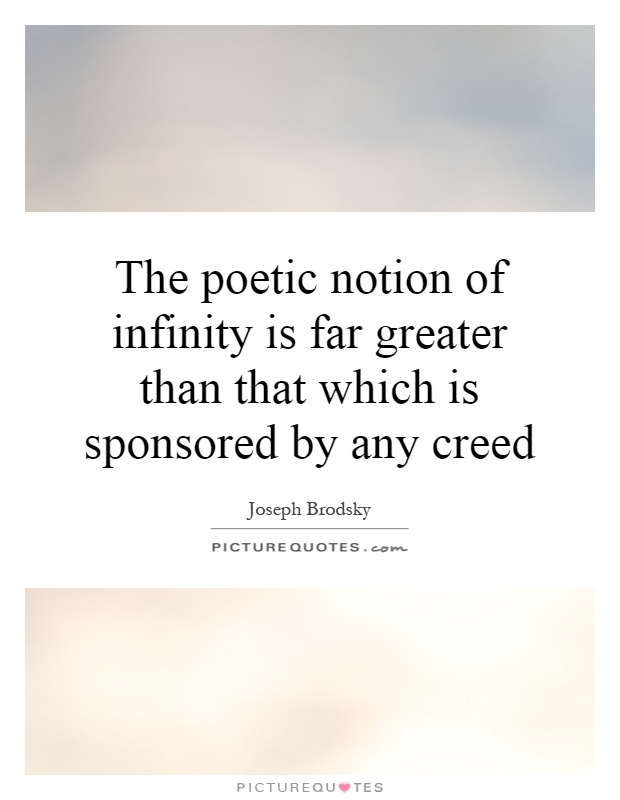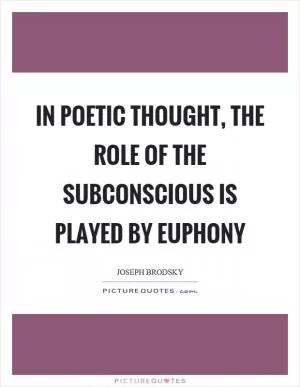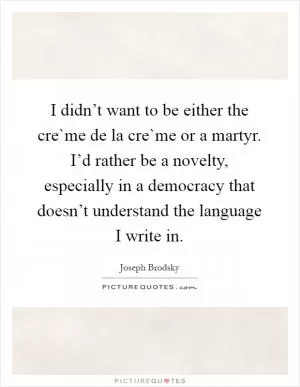The poetic notion of infinity is far greater than that which is sponsored by any creed

The poetic notion of infinity is far greater than that which is sponsored by any creed
Joseph Brodsky, the renowned Russian poet and essayist, was a firm believer in the power of poetry to transcend the limitations of religious dogma and offer a more expansive understanding of the infinite. In his works, Brodsky often explored themes of time, mortality, and the human condition, using language to probe the depths of existence and challenge conventional beliefs about the nature of reality.Brodsky's poetic notion of infinity is far greater than that which is sponsored by any creed because it is rooted in the individual's subjective experience of the world. Unlike religious doctrines that seek to impose a fixed set of beliefs on their followers, Brodsky's poetry invites readers to engage with the mysteries of existence on a personal level, encouraging them to question their assumptions and explore the boundaries of their own consciousness.
One of Brodsky's most famous poems, "To Urania," exemplifies his unique approach to the concept of infinity. In this work, Brodsky addresses the Muse of astronomy, invoking her as a symbol of the boundless possibilities of human imagination. By aligning himself with Urania, Brodsky suggests that poetry has the power to transcend the limitations of time and space, offering a glimpse into the infinite realms of the mind.
Brodsky's poetry is characterized by its lyrical beauty and philosophical depth, drawing on a wide range of literary and cultural influences to create a rich tapestry of images and ideas. His work often explores the tension between the finite and the infinite, the temporal and the eternal, inviting readers to contemplate the mysteries of existence in all their complexity.












 Friendship Quotes
Friendship Quotes Love Quotes
Love Quotes Life Quotes
Life Quotes Funny Quotes
Funny Quotes Motivational Quotes
Motivational Quotes Inspirational Quotes
Inspirational Quotes